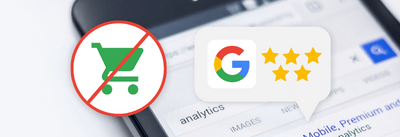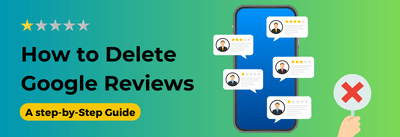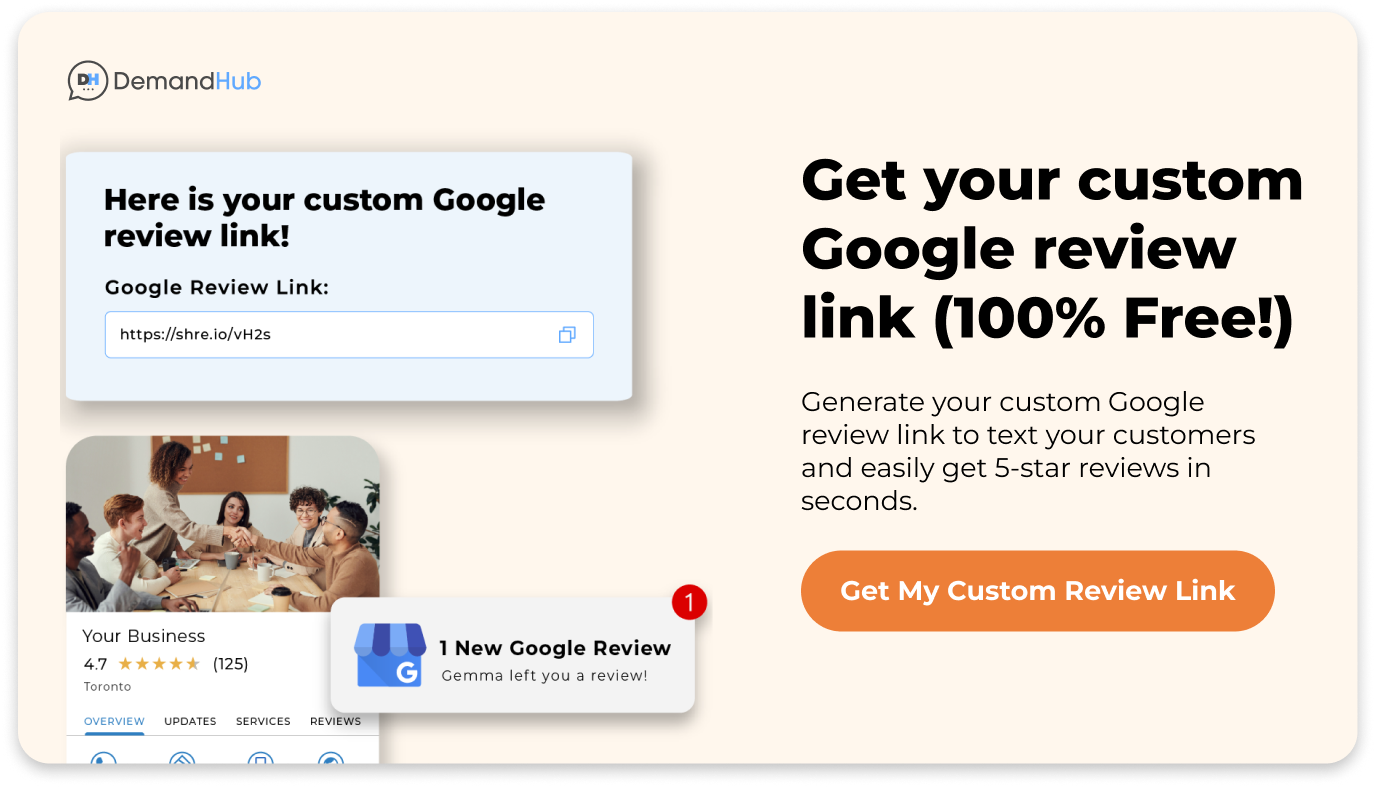14 Effective ways to Grow Your Pest Control Business in 2024
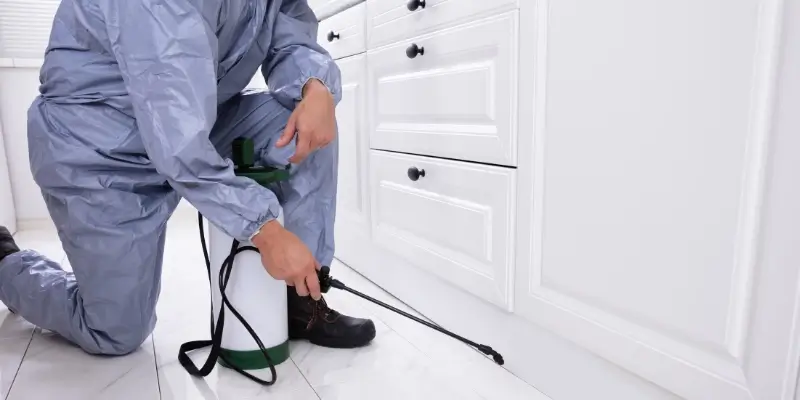
As a pest control business owner, you’ve likely hit a plateau, finding your revenue stubbornly stuck at the same point year after year. It’s a common challenge in this industry, where traditional methods often lose effectiveness over time, and competition intensifies.
But here’s the good news: you can break through this revenue ceiling with the right strategies. In this article, we’ve put together 14 practical, no-nonsense growth tactics tailored explicitly for your pest control business. We’ll explore creative approaches and proven methods to attract more clients and maximize the value of your existing customer base.
So, let’s roll up your sleeves and learn the strategies that promise to rejuvenate your pest control business and set your revenue graph soaring.
Table of Contents- 14 Proven Strategies for Pest Control Companies
- Grow Your Pest Control Business with DemandHub
- Frequently Asked Questions About Pest Control Business
14 Proven Strategies for Pest Control Companies
Growth and visibility are critical to outpacing competition and exceeding your revenue goals. Let’s explore 14 strategies to grow your pest control business to new heights.
1. Set up & Optimize Your Google Business Page (GBP)
If you haven’t done so, create your free pest control company listing on Google Business Profile. A well-maintained Google Business Page is more than just a digital footprint. It’s your storefront on the internet.
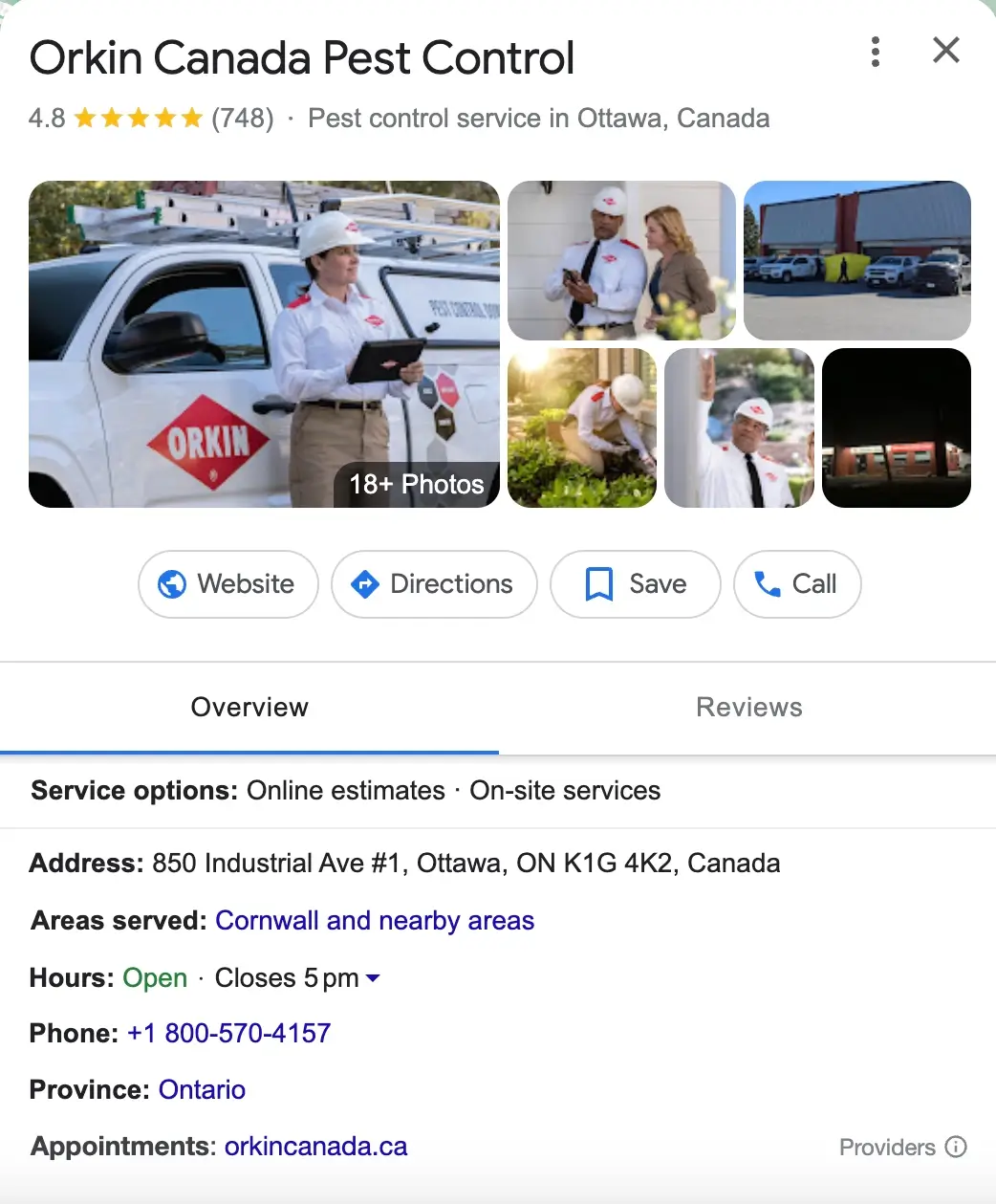
Start by claiming and verifying your business on GBP. Ensure every detail, from your contact information to your services and opening hours, is accurately listed. Remember, a complete and active GBP boosts your credibility and increases the likelihood of attracting local visits.
Encourage your satisfied customers to leave reviews. This enhances your reputation and significantly improves your visibility in local searches. Regularly revamp your page with photos and service updates.
2. Create a Stunning Pest Control Business Website
Your website is the first impression a potential customer has of your business. Invest in a professional, user-friendly website design. A well-structured website with clear calls-to-action guides visitors smoothly to the information they seek, whether service details or contact forms.
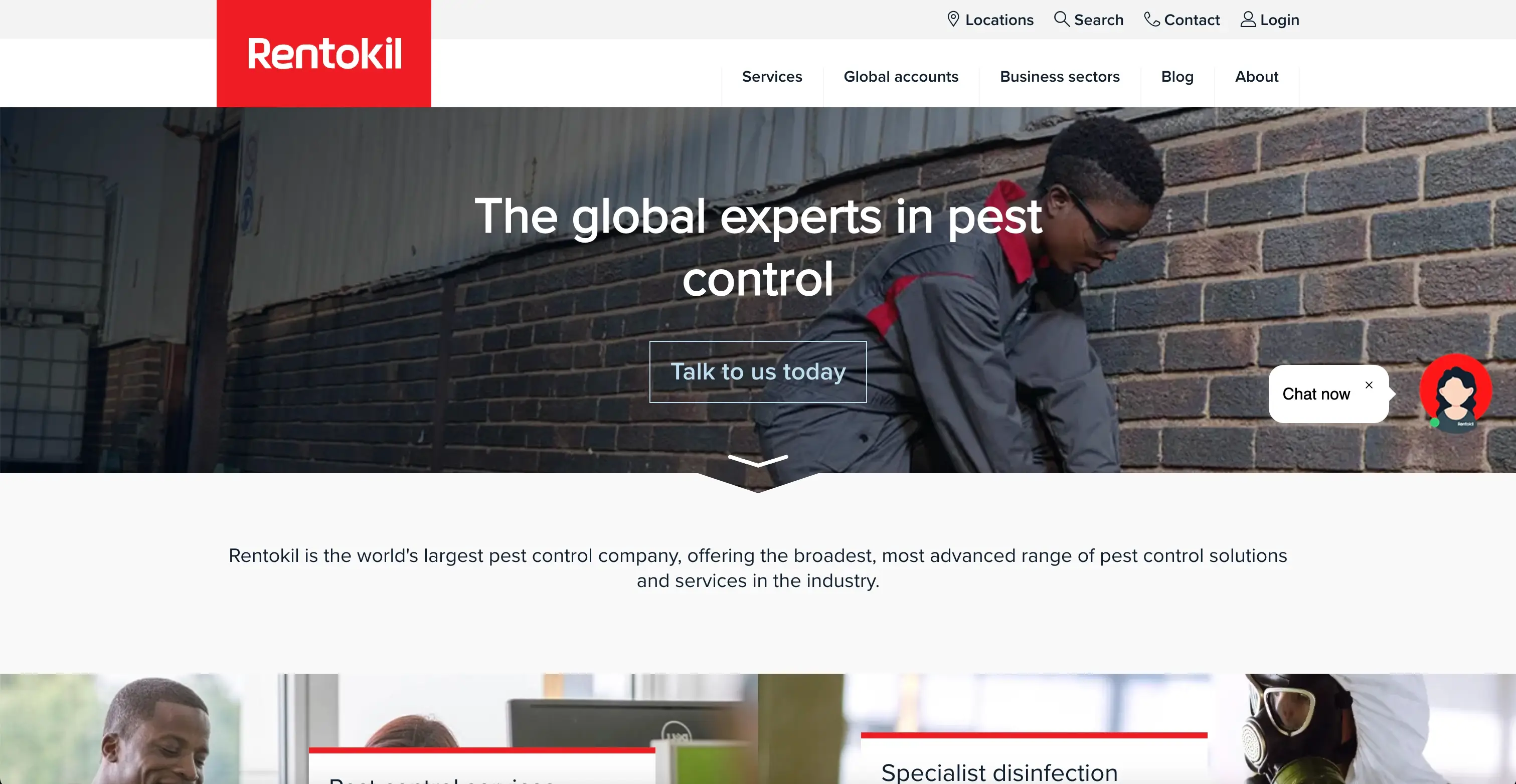
With more than 50% of website traffic coming from mobile devices, the importance of having a mobile-friendly website cannot be overstated. Therefore, optimizing your website for mobile users is non-negotiable. Also, don’t underestimate the power of testimonials and detailed service descriptions in building trust with prospective clients.
3. Invest in Local SEO
Local SEO is the cornerstone of your digital presence, especially for a service-area business like pest control. Start by integrating local keywords into your website’s content. This isn’t just about mentioning your location but also about understanding and incorporating your community’s specific pest control needs.
Build a network of local backlinks. You can do this by listing your pest control company in local directories or collaborating with other local businesses. This can significantly boost your search engine rankings.
Also, ensure your business name, address, and phone number are consistent across all online platforms to improve your visibility in ‘near me’ searches. Creating content that resonates with your local audience is a powerful way to establish your pest control business as a local authority.
Here are some content ideas that can help you connect with your community and address their specific pest control needs:
- seasonal pest control tips
- DIY pest prevention techniques
- local pest spotlights
- seasonal maintenance guides
- eco-friendly pest control solutions, etc.
4. Get Reviews with DemandHub
Online reviews are a powerful tool for businesses. Customers spend 31% more on business with positive reviews. Also, 49% of consumers trust online reviews as much as personal recommendations from friends and family.
This is where DemandHub can help. DemandHub is a customer experience and reputation management platform that helps local businesses grow. It offers a streamlined solution to help you gather and manage these crucial reviews.
By integrating DemandHub into your business strategy, you can encourage satisfied customers to share their positive experiences online.

DemandHub simplifies the review process by sending automated requests to your customers via email or SMS after completing a service. This proactive approach increases the likelihood of receiving reviews, as it captures customer feedback when their experience is still fresh in their minds.
Moreover, DemandHub’s platform allows you to monitor and respond to these reviews, helping you maintain a positive online reputation.
Using DemandHub boosts your visibility on search engines and enhances trust among potential customers. A solid collection of positive reviews can significantly influence consumer decisions.
5. Use Social Media
Social media is invaluable for pest control businesses looking to expand their reach and engage with their community. Platforms like Facebook, Instagram, and Twitter offer unique opportunities to connect with your audience in a more personal and interactive way.
Customers check your social media accounts, posts, and reviews before calling your business. Post at least 3 to 5 posts weekly on at least two social media platforms to grow organically.
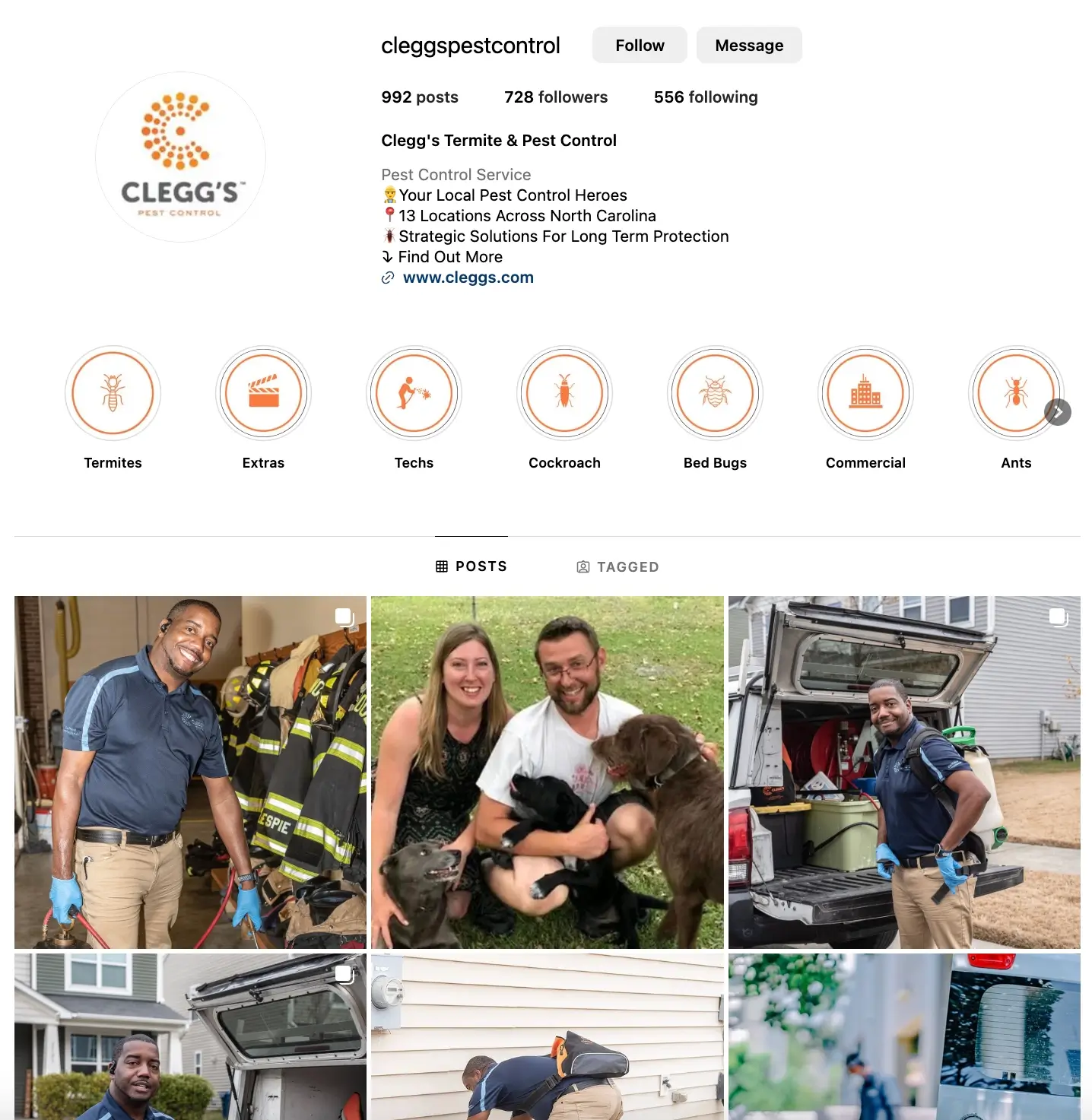
Creating informative and engaging content is critical. Here are a few social media content ideas you can start with:
- Services updates
- Tips on preventing pest infestations
- Employee of the month
- What do you do to fix a specific problem
- Upsell offers and special seasonal discounts
- Post before-and-after photos of your work
- Provide insights into the day-to-day operations
These glimpses into your services educate your audience and showcase your expertise and commitment to quality service.
Additionally, social media platforms are excellent for running targeted advertising campaigns. You can reach potential customers in your service area with ads tailored to their interests and behaviors.
Engage with your followers via comments and messages. It will help build a community around your brand, fostering loyalty and word-of-mouth referrals.
6. Automate Follow-Up
Automating follow-up communications with your customers can significantly enhance customer satisfaction and open up opportunities for repeat business and referrals.
Tools like email automation software allow you to send personalized thank-you messages, service reminders, and special offers without manual intervention.
DemandHub’s automated reminders streamline your follow-up process, ensuring timely and personalized customer communication. This feature is part of DemandHub’s comprehensive Web Chat tool.
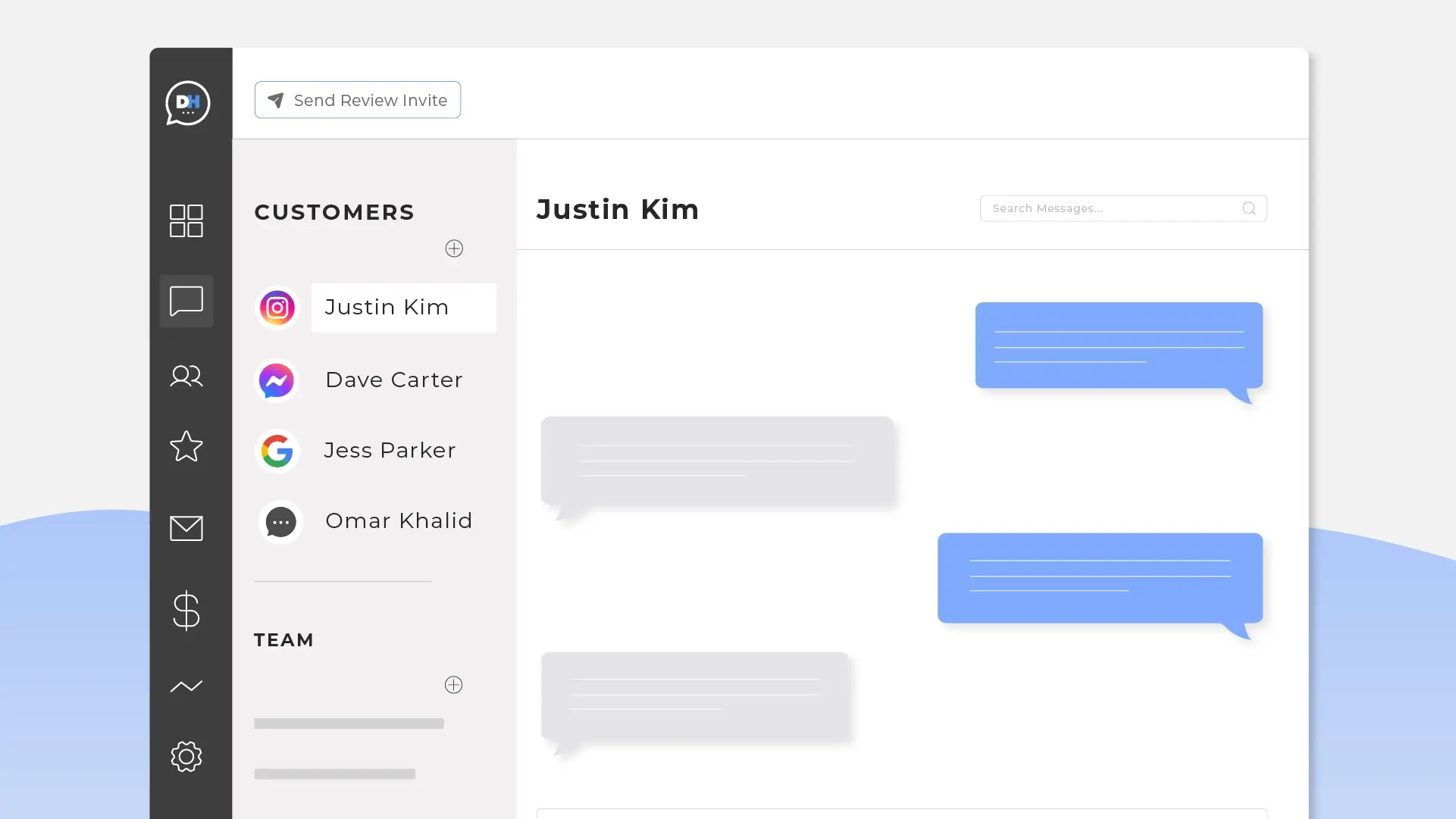
This consistent communication keeps your business top-of-mind and shows your commitment to customer service. Automated follow-ups can also include satisfaction surveys, providing valuable feedback on your services, and identifying areas for improvement.
Automating these processes saves time and resources and creates a more streamlined and professional customer experience. This level of attention and care can set your pest control business apart from competitors.
7. Advertise with Google Ads
Leveraging Google Ads is a game-changer for pest control businesses. With Google ads, you can boost your visibility and attract new customers. Targeted ad campaigns can reach potential clients precisely when they’re searching for pest control services in your area.
Google Ads allows you to customize your campaigns based on location, keywords, and even the time of day. It ensures the most relevant audience sees your ads. This strategic approach boosts your online presence and drives higher conversion rates, making it a cost-effective solution for growing your business.
8. Upselling and Cross-selling
Mastering the art of upselling and cross-selling can significantly enhance your revenue streams. In the pest control industry, this means recognizing opportunities to offer additional services or upgrades that complement what your customer initially sought.
For instance, if a client books a termite inspection, suggest an annual pest control package that covers a broader range of services.
Pest control often slips people’s minds until they have pests in their homes. Mostly, they opt for a single-service solution. Therefore, explore revenue-boosting strategies such as:
- Setting service contracts
- Implementing cross-selling techniques
- Offering monthly or annual upsell options
- Bundling services into high-profit packages
Upselling and cross-selling increase your average job ticket and provide added value to your existing customers, strengthening their trust in your expertise and care for their needs.
9. Price Your Services for Maximum Profit
Pricing your services is crucial for the profitability and sustainability of your pest control business. It’s essential to balance competitive pricing, cover costs, and achieve a healthy profit margin.
Conduct thorough market research to understand the standard rates in your area and consider the unique value propositions (USP) your business offers.
Consider the following elements to determine the accurate pricing for your services, such as:
- Salaries of your employees
- Operational expenses
- The break-even threshold
- Cost of chemicals for each job
- Desired business and growth profits
Remember, the stability of your pest control business hinges on getting your pricing right. You can push away your prospects if you charge too much, and you will end up eating into your profits if you’re not charging enough.
Moreover, your pricing strategy should reflect the quality of your services, your expertise, and the specific demands of the job. Transparent and fair pricing not only attracts customers but also fosters long-term loyalty and a positive reputation in the market.
10. Automate Your Business
Time is valuable, and automation can keep you ahead in the pest control business. Integrating automation into your business operations can streamline processes, reduce manual errors, and enhance overall efficiency.
This includes automating scheduling, billing, customer communications, and even route planning for service calls. Automation tools save time and allow you to focus more on strategic aspects of your business, like growth and customer service.
Embracing technology in this way modernizes your operations and significantly improves customer satisfaction by providing timely and accurate services.
11. Focus on the Right Pest Control Services
Success in the pest control industry hinges on identifying and focusing on the most in-demand services in your area. This requires understanding your local market and the specific pest challenges it faces.
Tailoring your services to address these unique needs ensures your business remains relevant and competitive. For instance, if your region is prone to termite infestations, specializing in advanced termite control techniques could set you apart from competitors.
Concentrate on the right services to build a strong reputation as a specialist in your field. This will help you attract more customers and generate higher revenue.
12. Provide Eco-Friendly Solutions
The trend towards eco-friendly solutions in pest control is growing. Customers are now seeking sustainable and safe methods. This shift presents an opportunity for your business to adopt and promote eco-friendly pest control practices.
In fact, 92% of homeowners are actively seeking more sustainable solutions for their homes. Furthermore, 62% have already invested in eco-friendly home improvements.
Integrated Pest Management
Integrated Pest Management (IPM) is at the forefront of this eco-friendly movement. IPM focuses on the long-term prevention of pests and their damage through a combination of techniques such as biological control, habitat manipulation, and the use of resistant varieties.
It emphasizes the use of least-toxic methods first, reducing the reliance on chemical solutions. By adopting IPM, your business caters to the environmentally conscious market and shows commitment to responsible and sustainable pest control practices.
This approach can significantly enhance your brand image and appeal to a broader customer base that values environmental stewardship.
Eco-Friendly Products
In addition to Integrated Pest Management, another critical aspect of providing eco-friendly pest control options is using eco-friendly products. These products are safe for the environment, non-toxic to non-target species, and effective in controlling pests.
By using these environmentally responsible products in your service offerings, you can appeal to a growing segment of customers who are concerned about the ecological impact of traditional pest control methods.
Offering eco-friendly products indicates your commitment to sustainability and positions your business as a forward-thinking, responsible choice in the pest control market. This approach can help differentiate your services and attract clients who prioritize environmental considerations in their pest control needs.
13. Offer Convenient Solutions to Clients
In today’s fast-paced world, convenience is king. Providing convenient solutions to your clients can significantly enhance their experience and satisfaction with your services. This can include, but is not limited to:
- offering flexible scheduling options,
- easy online booking systems,
- rapid response services for urgent pest issues.
By simplifying the process of getting pest control services, you make it easier for your clients to choose your company over competitors.
Additionally, integrating digital solutions like mobile apps or online customer experience platforms like DemandHub, where clients can track service progress, get instant responses, book appointments, and make payments, can add an extra layer of convenience that modern customers appreciate.
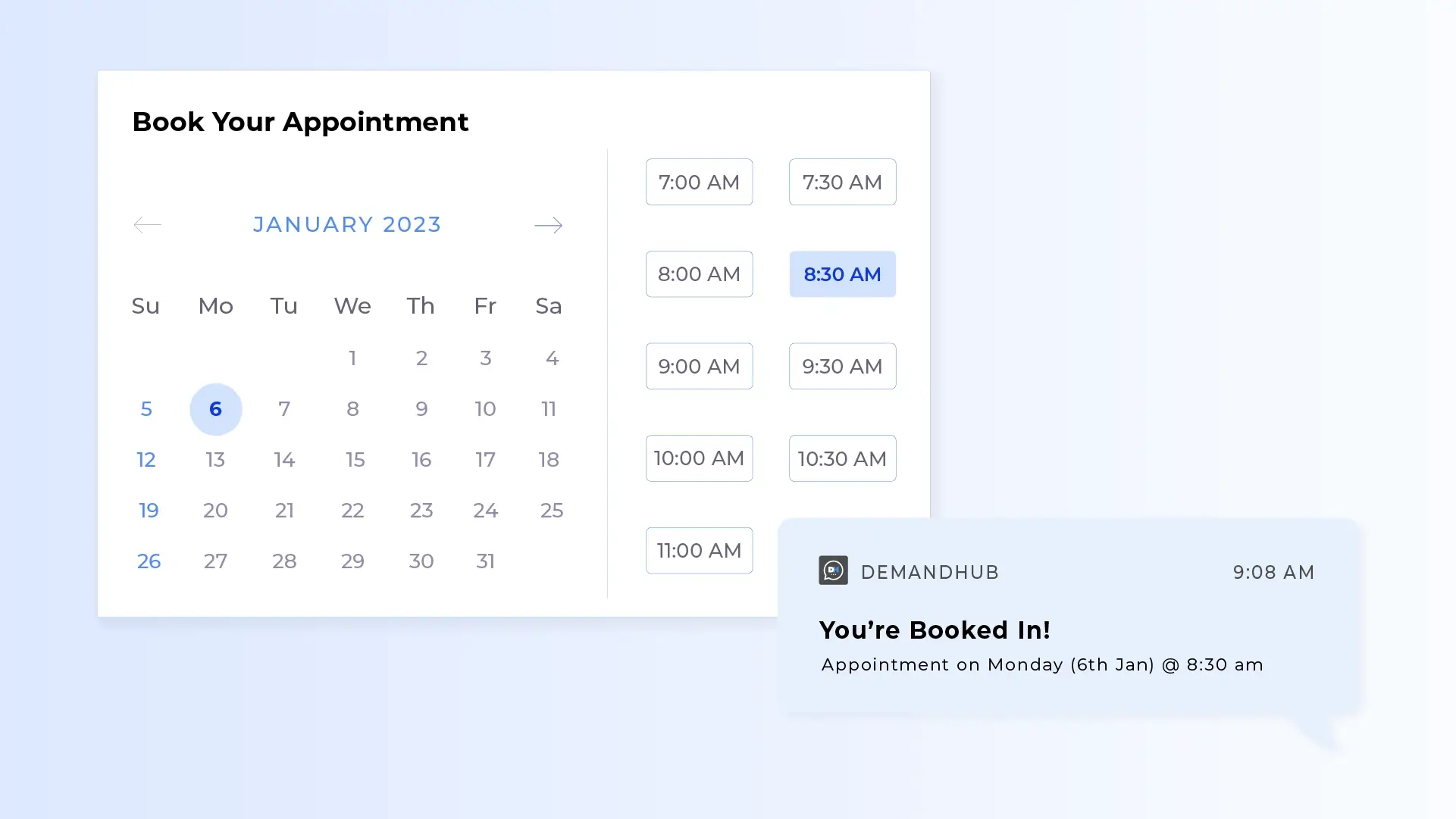
14. Use Referrals to Increase Conversions
Referrals are a powerful and efficient way to expand your pest control business. They are not as challenging to obtain as you might think and can significantly boost your conversion rates.
Here are some effective strategies to get referrals:
- Implement a Referral Program: Create a structured referral program that incentivizes current clients to recommend your services.
- Leverage Satisfied Customers: After receiving positive feedback, gently introduce your referral program to these happy clients.
- Simple Referral Offers: Make your referral incentives simple. Consider offering a complimentary service upgrade or a $15 discount on their next service for each successful referral.
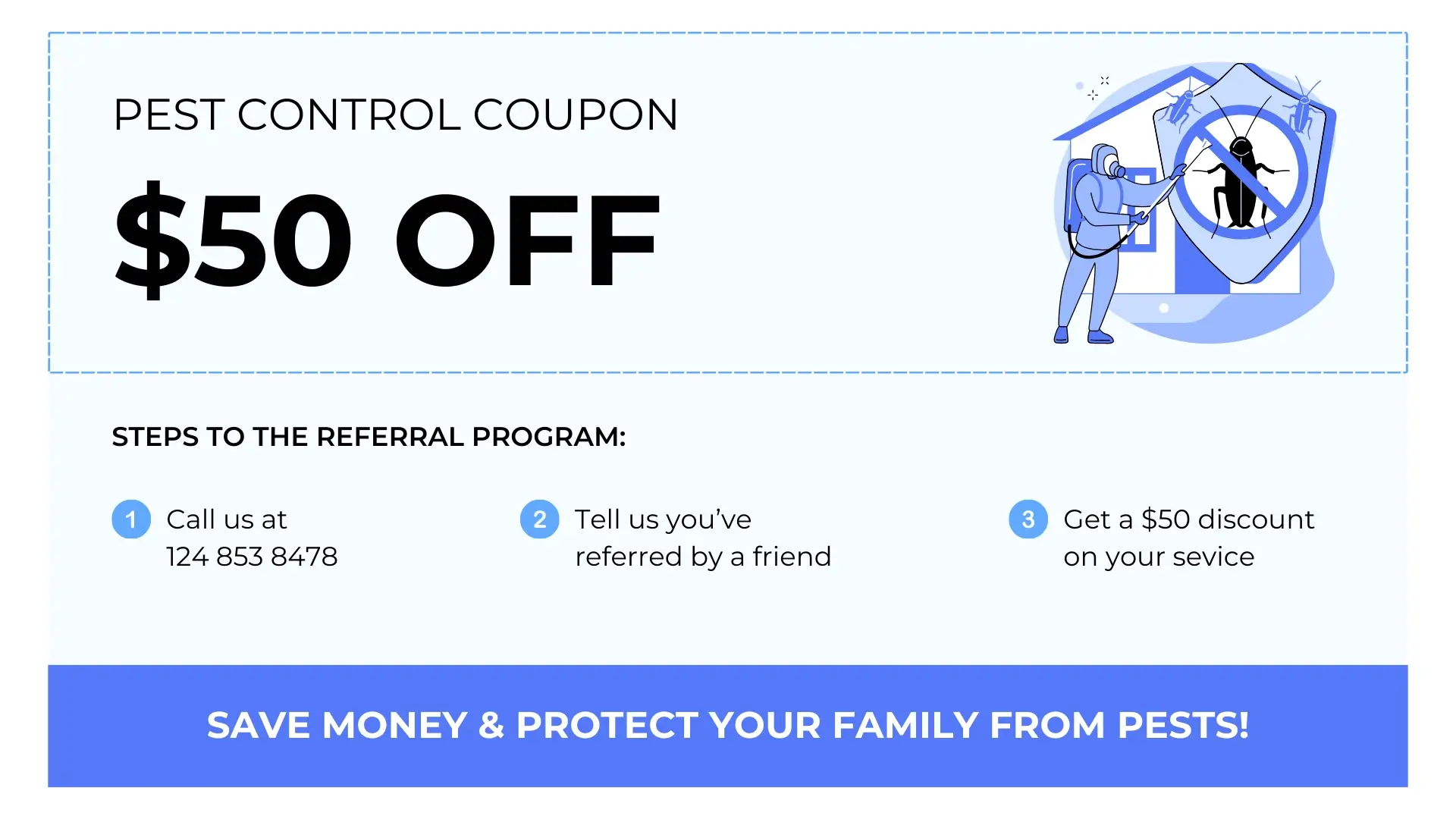
With a robust referral system, you can create a self-sustaining stream of new clients. This reduces the need for extensive marketing efforts. This approach not only brings in new business but also strengthens the loyalty of your existing customer base.
Grow Your Pest Control Business with DemandHub
Adopting these strategies sets the stage for significant growth and success in your pest control business. An essential component of this success is the effective management of your online presence and reputation, and this is where DemandHub plays a crucial role.
Leverage the capabilities of DemandHub to handle and highlight positive customer feedback, strengthening your pest control business’s reputation and market position.
Start your free trial or book a demo today.
Frequently Asked Questions About Pest Control Business
How Can I Improve My Pest Control Business?
To improve your pest control business, focus on enhancing customer service, adopting the latest technologies, and implementing effective marketing strategies. Regularly train your staff, offer eco-friendly solutions, and ensure your pricing is competitive yet profitable. Also, leverage digital tools for business automation and customer relationship management.
How Do I Get More Sales in Pest Control?
Increase sales in your pest control business by strengthening your online presence through SEO and social media marketing. Utilize Google Ads for targeted advertising, establish a referral program, and engage in local community events.
Focus on building a solid reputation through excellent service and customer reviews. Upselling and cross-selling relevant services to existing customers can also boost sales.
